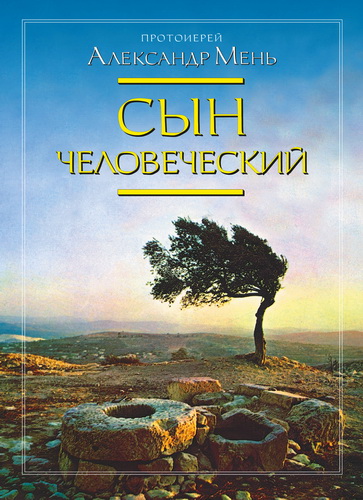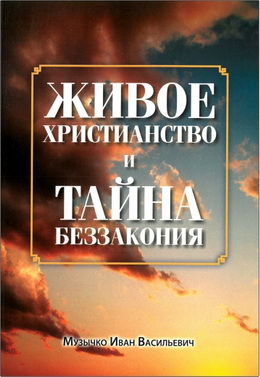
Gardner - New International Encyclopedia of Bible Characters - модуль BibleQuote
Paul D. Gardner - New International Encyclopedia of Bible Characters
The Complete Who’s Who in the Bible
Originally published in the U.K. by Marshall Pickering, an imprint of HarperCollinsReligious, a part of HarperCollinsPublishers. – Grand Rapids, MI: Zondervan, 2015. – 704 p.
Formerly titled The Complete Who’s Who in the Bible.
ePub edition September 2015: ISBN 978-0-310-52950-7
Originally published: The complete who’s who in the Bible. ©1995.
ISBN-10: 0-310-24007-7
ISBN-13: 978-0310-24007-5
Anyone approaching the Bible for the first time cannot fail to see that the Bible is not just a theoretical book about God. From the very first chapter we see this book is about God and his relationship with his creation and specially with people. We learn about God as we see him revealing himself to real men and women. God speaks to them, works with them, encourages them, disciplines them, loves them and judges them. It at once becomes clear that God has some sort of relationship with every single human being. The relationship may be one of love and fellowship or it may be one in which a person rebels against God, but the Creator God is always there and sovereignly sustains this world for as long as he chooses.
The challenge and excitement for me of leading this project is that it has allowed me to study these people in the light of their relationship with God. I hope that all who read this Who's Who will enjoy, as I have, learning more about God as we see him in relationship with people of different races, backgrounds, culture and beliefs. We see the weakest of people who trust in him and worship him being used by God in the most difficult and dangerous of situations. We see the strongest of the world's leaders who do not trust in him and worship him being torn from their thrones as God exercises his universal sovereignty. We see the most sinful of people being forgiven as they turn in faith to a loving God who cares for his people, and we see others being judged as they refuse even to listen to the warnings of judgment God gives.
As we look at people in the Bible we learn about how sin entered the world and how it has affected every part of every human being. We see this even in the so-called 'heroes' of the faith. In the biblical revelation there are no perfect leaders (until Christ himself). Abraham, Moses, David and other great leaders are seen to be God's people but are also seen to be sinners who need God's forgiveness.
As we read of the sin of men and women we can immediately recognize that these people are like us. But we also see God who forgave those who turned to him and so we see hope for ourselves if we too will trust in his salvation and forgiveness. As we look at our world and wonder at the horror of so much that is going on around us, we see that others have lived in times that were at least as bad or worse (look at the time of the Judges), and we take heart that God was sovereign then and remains the same today. We see the struggles of a faithful man like David asking 'How long O Lord?' and 'Why do the wicked prosper?' We relate to his emotions; we ask God the same questions and we learn of God as we see his answers to David and others down through history.
From the least significant, in human terms, to the greatest world leader we meet a sovereign Creator God who is concerned for people. As he reveals himself to people through the ages, it becomes more and more apparent that that concern of a holy and transcendent God for his people will lead to his provision for their salvation. As the focus of Scripture narrows down, it leads inexorably to God's eternal will to send his only Son Jesus to bring salvation to these people God has created and loves. The incarnation of Jesus becomes the greatest demonstration of all that God is concerned for people. As we study the individuals who knew Jesus and put their faith in him and who later followed him even if it took them to their death, so we find out what it is to be a recipient of God's grace and mercy and forgiveness. We see the joy in their lives even in the midst of persecution or illness or natural disaster as they know what it is to belong to God. As we see them tackling the world of their age, we are given a deeper understanding of God who loves, forgives, saves people from judgment, and leads his people forward to eternity with him.
* * *
GOLIATH
a giant warrior representing the Philistines whom David killed with a stone from his sling in the latter part of King Saul's reign (1 Sam. 17). He was called a 'champion . . . from Gath'. His height is recorded as 'over nine feet tall' (about 3 metres, assuming a measure of a 'cubit' as about 45 cms.). It is likely that he was employed by the Philistines and may have been a descendant of the Rephaim or Anakim (see Anak). The text describes the weight of his armour in some detail and says his spear 'was like a weaver's rod', thus further emphasizing the giant's stature (1 Sam. 17:5–7).
The armies of the Philistines and Israelites faced each other across the Valley of Elah. Each day Goliath would walk out into the valley and shout up a challenge to the Israelites. If anyone could beat him in single combat, then the Philistines would submit to Israel. If the Israelite lost, then Goliath would expect the Israelites to submit to the Philistines. The challenge of one champion to another in this way was a method of dealing with battles that was commonly accepted in those days.
David came to the battle area as a young lad commissioned by his father to take food to his brothers, who were part of the Israelite army. He heard the challenge and asked what was going on and who was going to do anything about it. In fact Saul and his army were too frightened to take on the challenge. David was horrified that an 'uncircumcised Philistine' should be allowed to 'defy the armies of the living God' (1 Sam. 17:25–26). So he volunteered to take on the challenge himself. He went to see Saul, who thought the whole idea of young, small David taking on Goliath was absurd. David recounted events in his life where he had had to show his courage as a shepherd in his father's fields. But most impressive in David's argument with Saul was his emphasis that God would be with him, for it was the LORD God who had helped him before.
Saul eventually allowed David to go, but insisted that he dress in Saul's own armour, which turned out to be much too big. David took it off, picked up five smooth stones from a stream and went off to meet Goliath with a sling and his stones in his shepherd's pouch (1 Sam. 17:40). The Philistines were insulted that a young boy should be sent out to them, and Goliath made fearful threats against David. David's response was of great significance and pointed forward to the sort of king that he would one day become. He argued that while Goliath came with spear and javelin, he came 'in the name of the LORD Almighty, the God of the armies of Israel' (1 Sam. 17:45). It was God who would deliver Goliath into David's hands. But not only the Philistines were to learn about the LORD's power - so would the Israelites, for David continued: 'All those gathered here will know that it is not by sword or spear that the LORD saves; for the battle is the LORD's, and he will give all of you into our hands' (1 Sam. 17:47).
Goliath was killed by a stone slung with force and great accuracy by David right into the giant's forehead. David then cut off Goliath's head with his own sword. The Philistines were chased and defeated by the Israelites. Through this victory David's reputation was established, and very quickly Saul saw him as a threat (1 Sam. 18).
As this episode is recounted it becomes clear that the author is concerned for the development of three different relationships: between David and Goliath representing the Philistines; between David and Saul and his armies; and between David and the LORD God. David so trusted in the Almighty LORD that he knew he could have confidence in accepting the challenge of the 'uncircumcised' Philistines. For David, the Philistines represented a nation in rebellion against God. Anyone who stood against the LORD Almighty would be judged by the LORD, and David well anticipated the result by his faith. David also found himself at odds with the Israelites, who had not shown such faith. It seems that almost reluctantly Saul said to David: 'Go, and the LORD be with you.' Later Saul's reaction becomes evident as he regarded the killing of Goliath as evidence that the LORD was with David but not with him (1 Sam. 18:12). Indeed, it was the anger and jealousy of Saul at David's success that led to 'an evil spirit from God' coming on Saul (1 Sam. 18:10).
David's reliance on the LORD indicated his depth of faith and the relationship of trust that he had with his LORD. The LORD blessed David, and from this time forward David comes to the fore in the narrative as God's blessings on him become deeper and deeper. Goliath, the strong and big, had been defeated by the power of God in one who was young and weak. Later Goliath's sword was taken to Nob, where it was hidden by Ahimelech the priest and given back to David when he needed it for fighting (1 Sam. 21:9–10)
p.d.g.





Комментарии
Пока нет комментариев. Будьте первым!